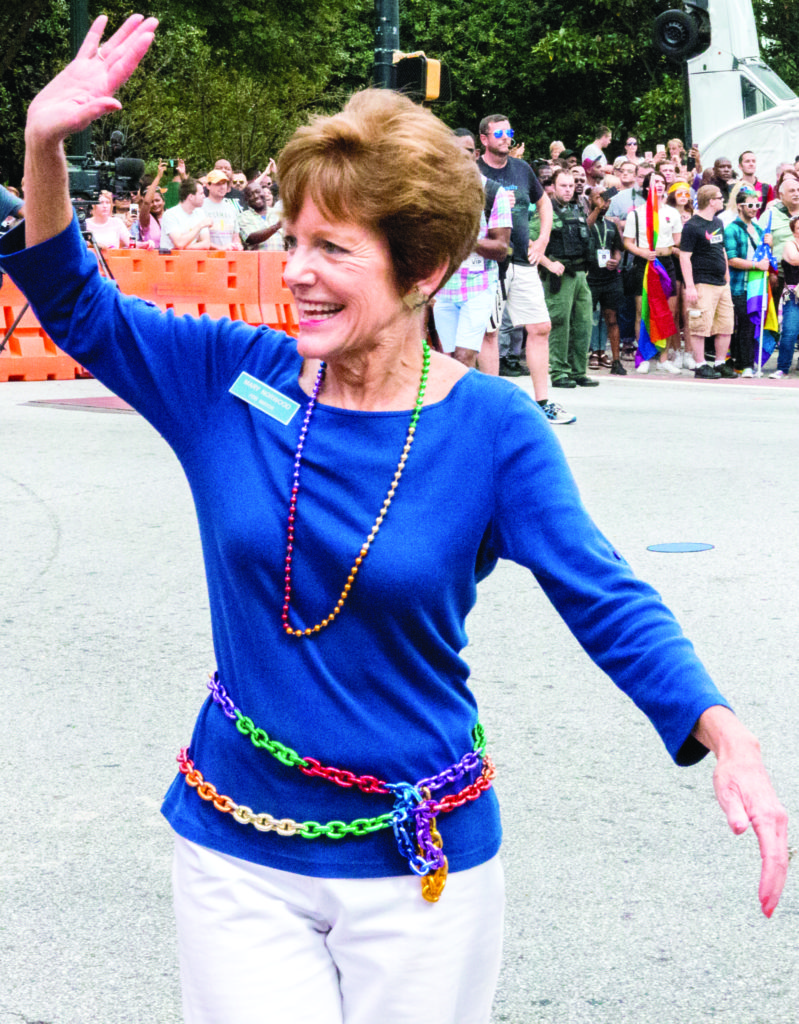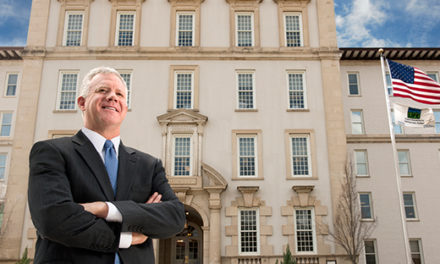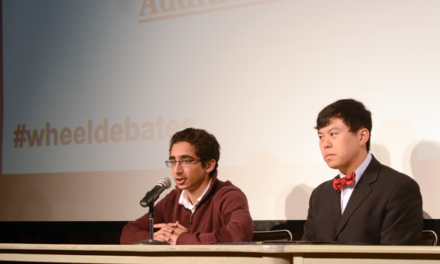An Emory alumna could be Atlanta’s first white mayor since 1973.
Mary Norwood (74C), the leading candidate in the 2017 non-partisan Atlanta mayoral election, spoke to the Wheel about her views on various pressing topics, such as Emory’s annexation into the city of Atlanta and Atlanta’s reputation as a “welcoming city” for undocumented individuals.
The most recent poll conducted by 11Alive news network and released Oct. 3 places Norwood at the lead with 28 percent of the vote. The next contender, Atlanta City Councilwoman Keisha Lance Bottoms stands at 15 percent.
Like most of the other Atlanta mayoral candidates, Norwood told the Wheel in an interview that she supports the annexation of Emory, the Centers for Disease Control and Prevention (CDC) and other Emory-affiliated entities into Atlanta.
“These are incredibly prestigious and impactful institutions that benefit Atlanta’s stature and reputation in the world,” Norwood said.
If elected mayor, the Emory alumna said that she would grow her relationship with the University by becoming involved in the Emory Alumni Association.
Norwood added that she would continue to uphold Atlanta as a welcoming city for undocumented immigrants, noting the importance of creating an inclusive city. Norwood said that she would follow the language of current Mayor Kasim Reed, who condemned President Donald J. Trump’s January executive order that would defund “sanctuary cities” as violating the U.S. Constitution, according to the Atlanta Journal-Constitution.
Norwood said that she is prepared to work with a seven-member commission appointed by Reed that is investigating the removal of Confederate monuments from public spaces in Atlanta.
“It is very important for us to be thoughtful about our heritage overall,” Norwood said.
Norwood declined to comment on the performance of Reed, who had defeated her in the 2009 race.
Norwood voiced support for keeping Atlanta and the greater suburban region connected. When asked about the Clifton Corridor Project, which would link Emory to downtown Atlanta via MARTA, Norwood described the project as a great way to connect the region.
“We have the ability … to accept not only a Clifton Corridor Project but also a subway coming in from areas that right now we’re not even touching,” Norwood said. “We have a once in a lifetime opportunity…to be able to have this connectivity that we would never have any other way,” Norwood said.
Norwood applauded Emory’s emphasis on traffic navigation and connectivity, and she has no doubt Emory would help “pay its fair share as it comes in.”
Norwood added that she supported the PATH Foundation trails project when it first came to Atlanta in the 1990s.
“This is the way of the future that we get around without being in single occupant vehicles. I am a very strong supporter of an entire trail network throughout the region,” Norwood said.
After graduating from Emory in 1974 with a bachelor’s in history, Norwood worked in the radio business and volunteered at the Atlanta Preservation Center, a nonprofit organization that promotes preservation of historical buildings in Atlanta. In 1990, Norwood became president of her neighborhood association in Tuxedo Park. She realized that, under the Historic Preservation Ordinance (1988), she could apply for her neighborhood to become a historic district. Although Norwood was defeated at City Hall by one vote, the events later led her to leave radio and start her own business, Norwood Communications. She credits the development of her career to her Emory education.
“It was the Emory liberal arts education and all of its courses that pertain to what I cared passionately about that compelled me into the career I’ve had,” Norwood said.
Before coming to Emory, Norwood attended Sweet Briar College (Va.) for two years and worked for the National Trust for Historic Preservation in Washington D.C., and in the Belle Grove Plantation, a historic property in Virginia. When she transferred to Emory in her junior year, Norwood said that she found classes that piqued her interest in history.
One professor, Elizabeth Lyon, taught an architecture and urban design history class that combined everything Norwood loved. Norwood said the class strengthened her desire to continue preservation work and that she still has Lyon’s book, “Atlanta Architecture: The Victorian Heritage, 1837-1918,” in her office at City Hall. Norwood was also a member of Emory’s chapter of Kappa Alpha Theta.
Voting for the Atlanta mayoral election will be held Nov. 7. Reed has already served two terms and is ineligible for reelection. If no candidate receives an absolute majority of 50 percent of the vote, a runoff vote will be held between the top two finishers Dec. 5.
For Emory students interested in politics, Norwood recommends that they learn about their representatives, volunteer for political campaigns and participate in voter drives.
“There’s an academic interpretation, and then there’s a real interpretation,” Norwood said. “There is nothing that can take the place of being in a campaign and watching it from start to the end.”
Parth Mody contributed reporting.






